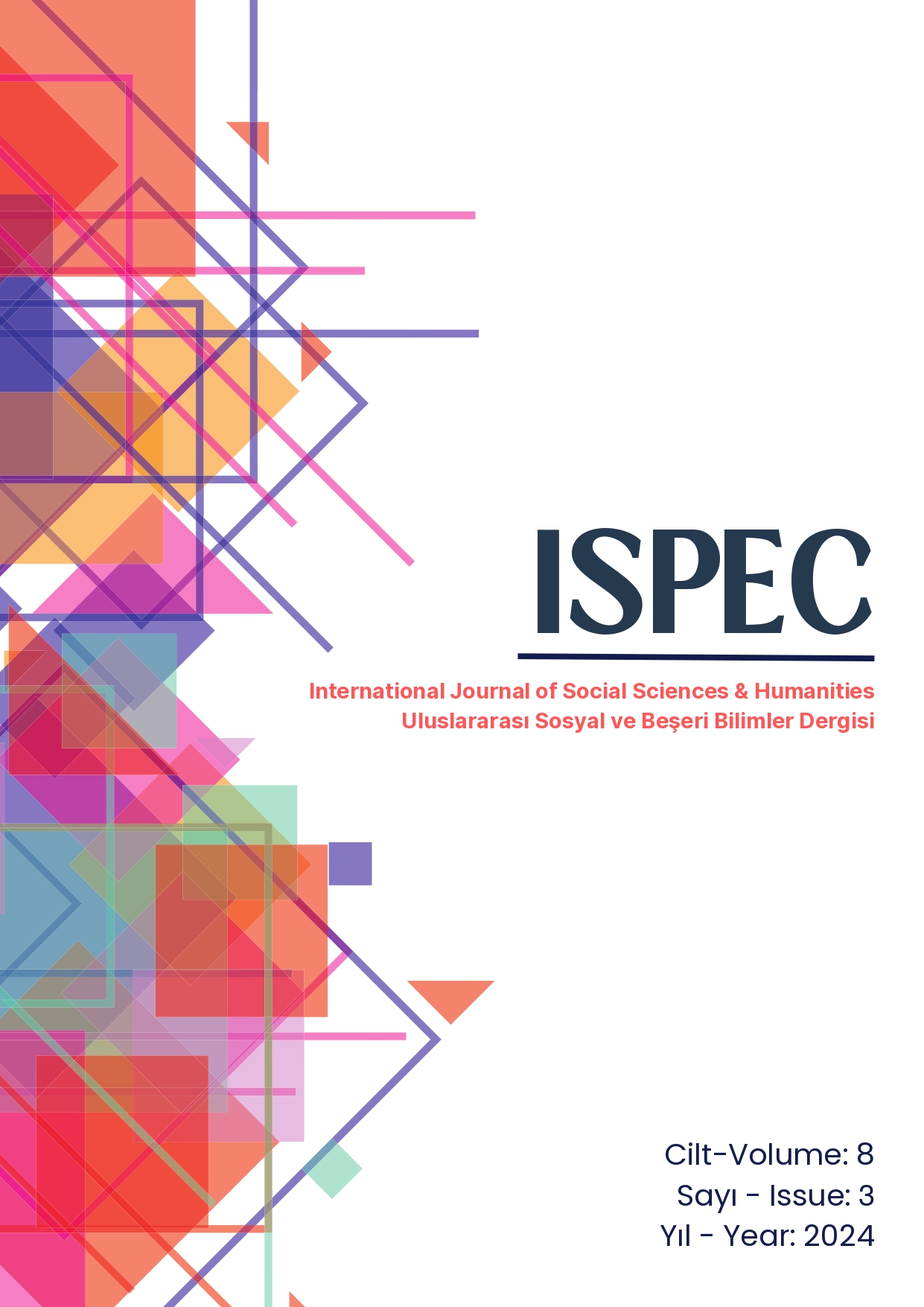Digital Ethics and Moral Education: A Review on Religious Culture and Ethics Curricula
DOI:
https://doi.org/10.5281/zenodo.13771458Keywords:
Turkish Century Education Model, Digital Ethics, Digital Literacy, Education ProgramsAbstract
This article examines the integration of digital ethics and digital literacy education into the Religious Culture and Moral Knowledge (RCMK) curriculum within the scope of the Turkish Century Education Model. Digital ethics addresses how ethical behavior and decisions should be made in digital environments, while digital literacy encompasses individuals' ability to use digital tools effectively and efficiently.
The main documents of the study include the General Presentation Document of the Turkish Century Education Model, the Common Text of the Turkish Century Education Model Curricula, and the RCMK Curricula (grades 4-8 and 9-12). The findings show that the curricula of the Turkish Century Education Model are in line with the basic principles emphasized in the literature on digital ethics and digital literacy education. In particular, students are expected to acquire the skills to exhibit ethical behavior in the digital world, to critically evaluate digital content, and to take digital security measures.
These findings reveal that digital ethics and digital literacy education goes beyond merely providing knowledge and skills, and aims to ensure that students grow up as conscious and responsible individuals in the digital world. The article emphasizes the importance of digital ethics education and contributes to academic studies in this field. In addition, it is stated that the approach of the curricula of the Turkish Century Education Model on digital ethics and digital literacy education aims to increase students' ability to cope with the ethical problems they face in the digital world.
References
Bowen, G. A. (2009). Document analysis as a qualitative research method. Qualitative Research Journal, 9(2), 27-40.
Braun, V., & Clarke, V. (2006). Using thematic analysis in psychology. Qualitative Research in Psychology, 3(2), 77-101.
Bryman, A. (2012). Social research methods. Oxford University Press.
Buckingham, D. (2007). Beyond technology: Children’s learning in the age of digital culture. Polity.
Creswell, J. W. (2013). Research design: Qualitative, quantitative, and mixed methods approaches. Sage Publications.
Floridi, L. (2013). The ethics of information. Oxford University Press.
Gleason, B. (2018). Thinking about digital citizenship: How ecological perspectives can help educators in troubling times. Teaching and Teacher Education, 76, 145-153.
Greenhow, C., Robelia, B., & Hughes, J. E. (2009). Learning, teaching, and scholarship in a digital age: Web 2.0 and classroom research: What path should we take now? Educational Researcher, 38(4), 246-259.
Hobbs, R. (2010). Digital and media literacy: Connecting culture and classroom. Corwin Press.
Livingstone, S., & Haddon, L. (2009). EU kids online: Final report. London School of Economics.
Miller, J. (2014). Digital security and cyberbullying: Implications for educational practice. Journal of Educational Technology & Society, 17(4), 79-91.
Millî Eğitim Bakanlığı. (2024a). Türkiye Yüzyılı Maarif Modeli Genel Sunum Dokümanı. Millî Eğitim Bakanlığı.
Millî Eğitim Bakanlığı. (2024b). Türkiye Yüzyılı Maarif Modeli Öğretim Programları Ortak Metni. Millî Eğitim Bakanlığı.
Millî Eğitim Bakanlığı. (2024c). Din Kültürü ve Ahlak Bilgisi Dersi Öğretim Programı (4-8. Sınıf). Millî Eğitim Bakanlığı.
Millî Eğitim Bakanlığı. (2024d). Din Kültürü ve Ahlak Bilgisi Dersi Öğretim Programı (9-12. Sınıf). Millî Eğitim Bakanlığı.
Patton, M. Q. (2015). Qualitative research & evaluation methods. Sage Publications.
Resnik, D. B. (2018). The ethics of research with human subjects: Protecting people, advancing science, promoting trust. Springer.
Selwyn, N., & Facer, K. (2013). The politics of education and technology: Conflicts, controversies, and connections. Palgrave Macmillan.
Sert, H., & Yılmaz, E. (2019). Dijital etik ve eğitim. Eğitim Teknolojisi Kuram ve Uygulama, 9(2), 115-130.
Turkle, S. (2015). Reclaiming conversation: The power of talk in a digital age. Penguin Press.
Yin, R. K. (2014). Case study research: Design and methods. Sage Publications.
Downloads
Published
How to Cite
Issue
Section
License
Copyright (c) 2024 ISPEC International Journal of Social Sciences & Humanities

This work is licensed under a Creative Commons Attribution-NonCommercial-NoDerivatives 4.0 International License.






